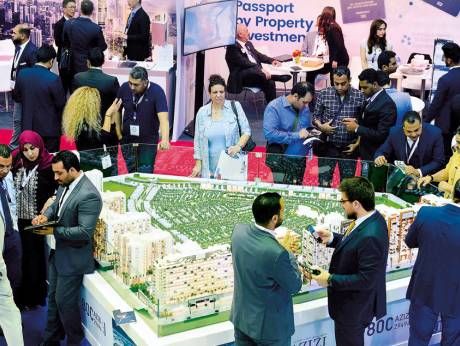While some analysts have suggested that developers could start scaling back on post-handover payment plans as the price gap between off-plan and ready property starts to narrow, not everyone agrees. “Despite the price gap closing in, we believe developers will continue with post-handover payment plans to attract buyers to purchase directly from them rather than the secondary market,” John Stevens, managing director of real estate consultancy Asteco, tells Property Weekly. “This is mainly due to the current scenario where supply is higher than demand.”
Mario Volpi, sales and leasing manager at Engel & Völkers Dubai, a joint venture between Nakheel and the German brokerage firm, agrees that post-handover plans are here to stay. “It would be a mistake for developers to go down that route [and scale back post-handover plans] because since Ramadan, this is exactly what has made the property market buoyant.”
Ready units in demand
Volpi cites a payment plan by Nakheel on ready property in Azure Residences on Palm Jumeirah, where one can pay 5 per cent and move in, and the other 95 per cent over five years. Because the units are ready, they can be rented out and buyers can also use the rental income to pay part of the purchase price.
“There’s a big demand for end-user stock. Any developer that can organise a post-handover plan similar to a rent-to-own scheme and has recognised that this is what’s working, will carry on selling their stock throughout the summer,” says Volpi. “That’s why we’ve done well with the Nakheel stock in Al Furjan.”
Volpi says many prospective buyers are unable to raise the 25 per cent mortgage deposit plus other fees. “When you add in school fees and living costs, it becomes a struggle for many people.”
Rent-to-own
Consequently, rent-to-own schemes are now re-emerging. “We have a development in Al Furjan where buyers can rent a property for three years and at the end of this period, they can decide whether they want to buy the unit,” says Volpi. “If they decide to buy the property, then the three years’ worth of rent they’ve paid goes toward their deposit, which adds up to 25 percent. This means that after three years, all they need is a 75 per cent mortgage because they’ve already raised the 25 percent.”
Manika Dhama, associate partner at property consultancy Cavendish Maxwell, notes that developers are increasingly looking at innovative ways to market their products. One of these is more targeted marketing to certain segments, including special roadshows in China, Russia or Eastern Europe.
Casting a wider net
“I think that’s where more focus will be — developing a broader network with people who are active in these markets. They will be casting a net wider,” Dhama tells Property Weekly. “A lot of developers have also recognised that their digital and social media presence could be enhanced. It’s no longer just being at Cityscape or regular events.”
With the amount of supply to choose from, developers will have to continue differentiating their products and offering incentives. Dhama cites “nearly ready” villas at Arabian Ranches II, which are being sold with a five-year payment plan (80 percent post-handover) with free Dubai Land Department registration fee and free service charges for five years. Damac offers up to 10 years free service charge and half the registration fee for certain projects in Akoya Oxygen.
Ultimately, while incentives involving freebies such as cars have emerged in the past, structured payment plans are still much more effective in attracting buyers. “Any developer that goes down that route will be successful,” says Volpi.
All rights reserved to the initial publisher for Gulf News
Collected and published by Arms &McGregor International Realty® editorial team. Get in touched with us at [email protected].

